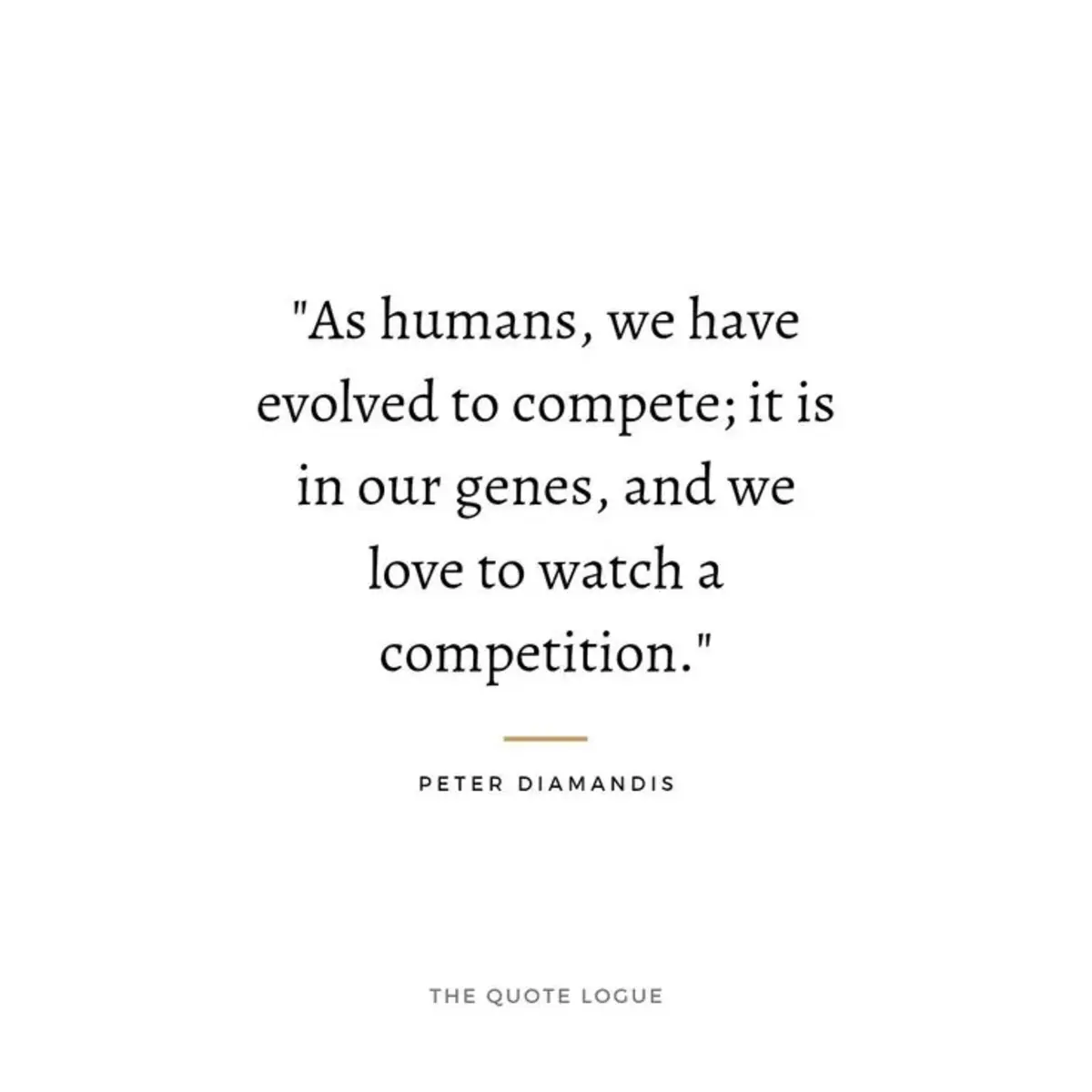Contributions of Moral Thinkers and Philosophers from India and World.
In News: Devdutt Pattanaik writes: Religion and the illusion of equality
Peter Diamandis: “As humans, we have evolved to compete; it is in our genes, and we love to watch a competition.”
Peter Diamandis’s statement highlights a profound aspect of human nature: our intrinsic drive to compete. Competition, an evolutionary trait, drives individuals to seek higher status and resources.
This competition can be seen in various forms, from sports and games to scientific advancements and technological innovations.
- Motivation: A competitive nature keeps individuals motivated to improve and achieve their goals.Example,Mary Kom’s unwavering belief in her abilities drove her to boxing success.
- Innovation: Competition fosters innovation, as seen in tech companies that develop groundbreaking products to outperform rivals, like Apple and Samsung in the smartphone market.
- Skill Development: Engaging in competition encourages skill enhancement, exemplified by athletes who train rigorously to improve their performance for competitions like the Olympics.
- Resilience: Competing helps build resilience, illustrated by entrepreneurs who learn from failures in business competitions and adapt their strategies for future success.
However it leads to inherent inequalities where individuals constantly compare themselves against others.
- Increased Stress and Anxiety: The pressure to outperform others often results in significant stress and anxiety, negatively impacting mental health and overall well-being.
- Unethical Behaviour: A strong desire to win can lead individuals to engage in unethical practices, such as cheating or sabotaging others to achieve success.
- Widening inequality: Competition can widen inequality by favouring those with existing advantages, creating a cycle where the wealthy accumulate more resources while the disadvantaged struggle to keep up.
- Diminished Collaboration: Excessive competition can erode teamwork and hinder collaboration, as individuals focus more on personal success rather than collective goals.
- Scarcity Mentality: A competitive mindset fosters a scarcity mentality, where individuals believe success is limited, leading to hoarding of resources and information
- Individualism at the expense of collectivism: Additionally, excessive competition can foster individualism at the expense of collectivism, neglecting the needs and well-being of others.
To address these ethical challenges, it is essential to promote fairness, equity, and cooperation. Ethical leadership plays a crucial role in shaping competitive environments, encouraging fair play and discouraging unethical behaviour. Regulation and oversight may also be necessary to prevent harmful practices and ensure that competition benefits society as a whole.

